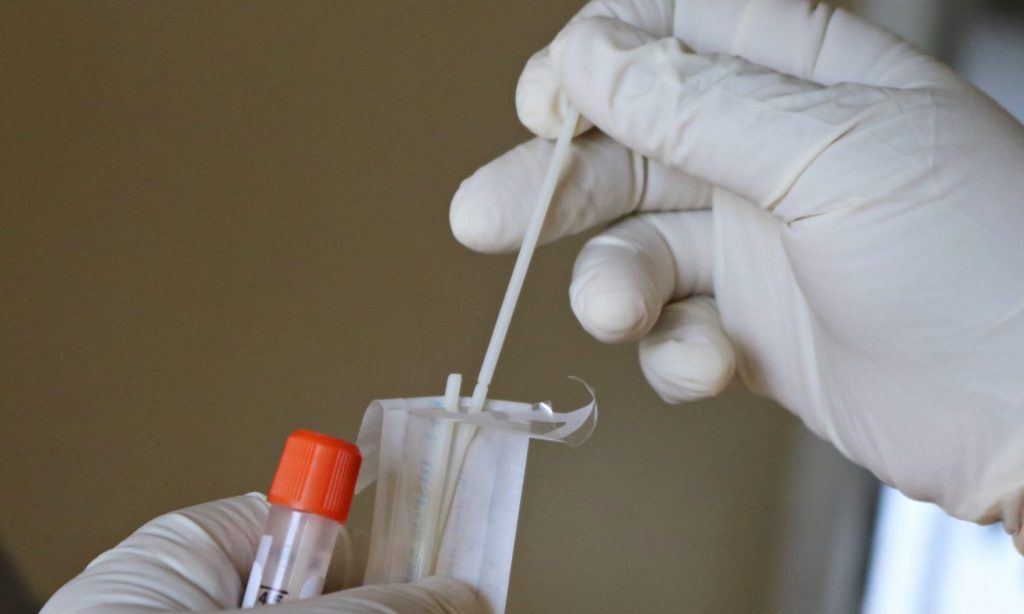How CBD And THC Are Changing COVID-19 Treatment

The scientific community seems to be more widely accepting cannabis to treat newer diseases, leading to better education and understanding for all.
With coronavirus variants raging across the globe, could THC and CBD offer benefits not yet known in treating and keeping the virus’s deadly effects at bay? While THC and CBD are already known to aid in many diseases, scientists worldwide are looking to different combinations and strains to understand better how they can decrease long-term complications and death.
Throughout most of 2020 and already in 2021, new studies are emerging that back earlier findings, creating a strong connection between CBD and THC as agents against the virus. In fact, CBD is already making a difference with COVID-19.
Here are three fast facts to know:
- CBD has already been proven to reduce inflammation in the body, directly tied to the harm of cytokines released by the coronavirus. Many COVID-19 patients did not die from the virus itself. The body’s response to the virus—a process called a cytokine storm—caused the body to go into a “fight” mode, causing breathing issues and over-saturation of cytokines in the body. Whenever a virus enters the body, it releases cytokines, a secretion from the cells that respond to the virus—allowing the immune system to retaliate.
- CBD could be an effective treatment against cytokine storms, which is what causes the most havoc in the body. According to the medical journal, HealthEuropa, “Early findings in a study currently being conducted by terpene manufacturer Eybna and cannabis research and development firm CannaSoul Analytics, both from Israel, appear to indicate that the combination of terpenes and cannabinoids used is up to two times more effective than the corticosteroid dexamethasone when used to reduce inflammation from COVID-19. The study has not yet been peer-reviewed.”
- More research is continuing to happen overseas to see the virus’s full effects and ways CBD can mitigate long-term damage. Research from Rabin Medical Center at Beilinson, a leading hospital of Clalit HMO, holds a clue to further studies. In recent research, the Center’s team found that out of 11 patients in the program, 8 saw an improvement in infections stemming from the virus.
Announced in January 2021, a clinical trial in Israel featuring Stero Biotechs, “aimed to benefit and help COVID-19 patients in severe states with respiratory failure from acute respiratory distress syndrome (ARDS).” With heart damage being a leading cause of complications from COVID-19, many are looking into ways to lessen the virus’s effects on the body after infection. Stero Biotechs’ CEO, David Bassa, has been at the forefront of utilizing CBD and synthetic CBD in other trials, including Crohn’s Disease and hives.

Photo by Mufid Majnun via Unsplash
THC and the battle against COVID-19
THC is no stranger to the fight against coronavirus as well. The University of South Carolina unveiled a June 2020 study published in the journal Frontiers in Pharmacology, which found THC could effectively treat COVID complications and reduce mortality. The preliminary study found that using mice, “THC led to 100% survival of mice.” with the compound lessening inflammation cytokines, IFN-γ and TNF-α, removing the “cytokine storm” or overreaction to the virus and finding how specific cells and bacteria in the lungs played a critical role in understanding COVID-19’s reach and extinction.
One element is certain: The scientific community seems to be more widely accepting cannabis to treat newer diseases, leading to better education and understanding for all.
420 Intel is Your Source for Marijuana News
420 Intel Canada is your leading news source for the Canadian cannabis industry. Get the latest updates on Canadian cannabis stocks and developments on how Canada continues to be a major player in the worldwide recreational and medical cannabis industry.
420 Intel Canada is the Canadian Industry news outlet that will keep you updated on how these Canadian developments in recreational and medical marijuana will impact the country and the world. Our commitment is to bring you the most important cannabis news stories from across Canada every day of the week.
Marijuana industry news is a constant endeavor with new developments each day. For marijuana news across the True North, 420 Intel Canada promises to bring you quality, Canadian, cannabis industry news.
You can get 420 Intel news delivered directly to your inbox by signing up for our daily marijuana news, ensuring you’re always kept up to date on the ever-changing cannabis industry. To stay even better informed about marijuana legalization news follow us on Twitter, Facebook and LinkedIn.




